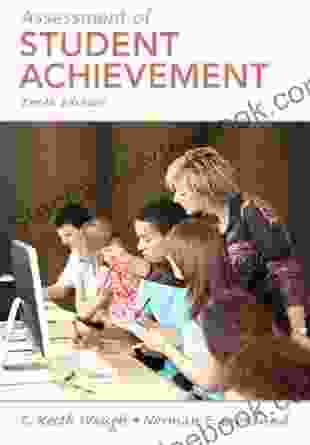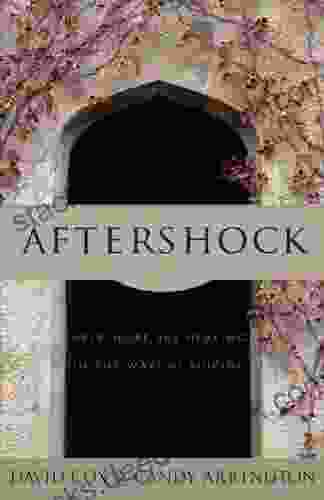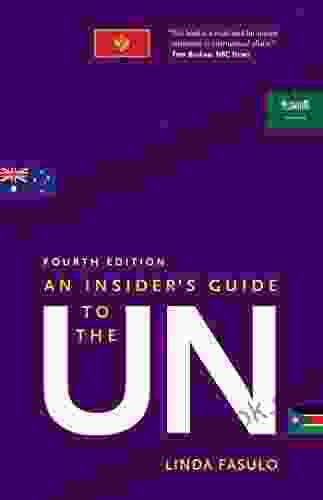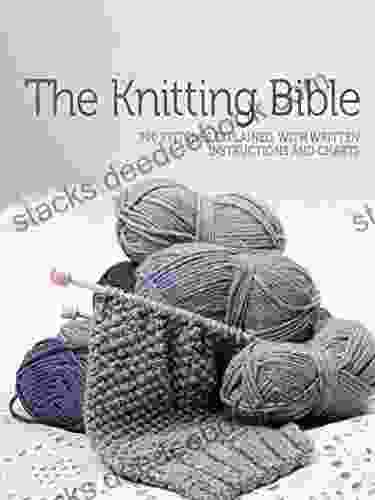Assessment of Student Achievement: A Comprehensive Guide for Educators

Assessment is an integral part of the teaching and learning process. It allows educators to gather information about student learning, identify areas where students need additional support, and make informed decisions about instruction. Assessment can also be used to track student progress over time and to evaluate the effectiveness of instructional programs.
4.6 out of 5
| Language | : | English |
| File size | : | 3997 KB |
| Screen Reader | : | Supported |
| Print length | : | 288 pages |
| X-Ray for textbooks | : | Enabled |
There are many different assessment methods that can be used in the classroom. The most appropriate method will depend on the learning objectives, the age and developmental level of the students, and the resources available. Some common assessment methods include:
- Observations: Observing students during classroom activities can provide valuable information about their learning. Educators can observe students' behavior, interactions with others, and participation in activities.
- Anecdotal records: Anecdotal records are brief written accounts of student behavior or performance. These records can be used to document student progress, identify areas where students need additional support, and provide feedback to students and parents.
- Portfolios: Portfolios are collections of student work that demonstrate student progress over time. Portfolios can include a variety of artifacts, such as writing samples, artwork, projects, and presentations.
- Performance assessments: Performance assessments require students to demonstrate their skills and knowledge through hands-on activities. These assessments can be used to assess students' ability to apply their learning to new situations.
- Standardized tests: Standardized tests are normed tests that are administered to large groups of students. These tests can be used to compare student performance to national or state standards.
Principles and Guidelines for Assessment
When conducting assessments, it is important to follow certain principles and guidelines to ensure that the assessments are fair, valid, and reliable.
- Fairness: Assessments should be fair to all students, regardless of their race, gender, ethnicity, or socioeconomic status. This means that the assessments should be based on clear learning objectives and that all students should have an equal opportunity to succeed.
- Validity: Assessments should measure what they are intended to measure. This means that the assessments should be aligned with the learning objectives and that they should provide accurate information about student learning.
- Reliability: Assessments should be reliable, meaning that they produce consistent results when administered multiple times. This means that the assessments should be well-designed and that they should be administered in the same way each time.
- Transparency: Assessments should be transparent, meaning that students and parents should be informed about the purpose of the assessments, the criteria for assessment, and the procedures for administering the assessments.
- Usefulness: Assessments should be useful, meaning that they should provide information that can be used to improve student learning. This means that the assessments should be used to inform instructional decisions and to track student progress over time.
Assessment Literacy
Assessment literacy is the ability to understand and use assessment information effectively. Assessment-literate educators are able to:
- Understand the purpose of different assessment methods
- Select and use assessment methods that are appropriate for the learning objectives
- Interpret assessment results accurately
- Use assessment information to improve instruction
- Communicate assessment results to students and parents in a meaningful way
Assessment literacy is an essential skill for all educators. By becoming assessment-literate, educators can ensure that their assessments are fair, valid, and reliable. They can also use assessment information to improve student learning and to track student progress over time.
Assessment is an essential part of the teaching and learning process. By following the principles and guidelines outlined in this article, educators can ensure that their assessments are fair, valid, and reliable. They can also use assessment information to improve instruction and to track student progress over time.
4.6 out of 5
| Language | : | English |
| File size | : | 3997 KB |
| Screen Reader | : | Supported |
| Print length | : | 288 pages |
| X-Ray for textbooks | : | Enabled |
Do you want to contribute by writing guest posts on this blog?
Please contact us and send us a resume of previous articles that you have written.
 Novel
Novel Page
Page Text
Text Reader
Reader Magazine
Magazine Newspaper
Newspaper Paragraph
Paragraph Shelf
Shelf Glossary
Glossary Bibliography
Bibliography Preface
Preface Footnote
Footnote Manuscript
Manuscript Codex
Codex Tome
Tome Bestseller
Bestseller Classics
Classics Library card
Library card Biography
Biography Autobiography
Autobiography Memoir
Memoir Reference
Reference Narrator
Narrator Character
Character Librarian
Librarian Card Catalog
Card Catalog Archives
Archives Study
Study Lending
Lending Academic
Academic Journals
Journals Rare Books
Rare Books Special Collections
Special Collections Interlibrary
Interlibrary Literacy
Literacy Study Group
Study Group Thesis
Thesis Awards
Awards Reading List
Reading List Theory
Theory Rachel Lawes
Rachel Lawes S S Van Dine
S S Van Dine Christa Craven
Christa Craven Sonia Levitin
Sonia Levitin Tom Skinner
Tom Skinner L B Dunbar
L B Dunbar Kofi A Annan
Kofi A Annan Adriana Locke
Adriana Locke John Farndon
John Farndon Georgia Ivey Green
Georgia Ivey Green Theo Christodoulou
Theo Christodoulou Jack Barrow
Jack Barrow Jamia Wilson
Jamia Wilson Mary Sebastian
Mary Sebastian Larry Bennett
Larry Bennett Terry Orlick
Terry Orlick Paul Osborne
Paul Osborne Nick Russell
Nick Russell Julie Anne Long
Julie Anne Long Shelagh Hubbard
Shelagh Hubbard
Light bulbAdvertise smarter! Our strategic ad space ensures maximum exposure. Reserve your spot today!
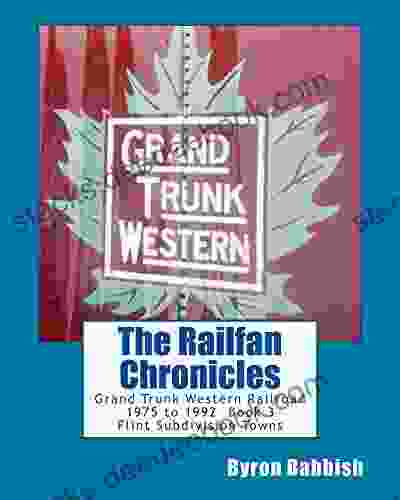
 Alexander BlairThe Railfan Chronicles: Grand Trunk Western Railroad Flint Subdivision Towns
Alexander BlairThe Railfan Chronicles: Grand Trunk Western Railroad Flint Subdivision Towns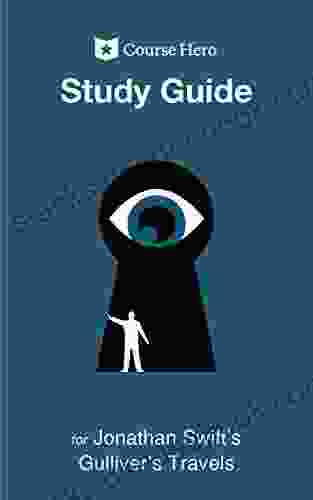
 Carlos FuentesA Comprehensive Guide to Jonathan Swift's Gulliver's Travels: An Exploration...
Carlos FuentesA Comprehensive Guide to Jonathan Swift's Gulliver's Travels: An Exploration... Jorge Luis BorgesFollow ·7k
Jorge Luis BorgesFollow ·7k Edgar HayesFollow ·9.5k
Edgar HayesFollow ·9.5k Braden WardFollow ·10.5k
Braden WardFollow ·10.5k Gerald BellFollow ·2.8k
Gerald BellFollow ·2.8k Hank MitchellFollow ·8.7k
Hank MitchellFollow ·8.7k Fletcher MitchellFollow ·8.2k
Fletcher MitchellFollow ·8.2k Avery SimmonsFollow ·15.5k
Avery SimmonsFollow ·15.5k Duncan CoxFollow ·11.3k
Duncan CoxFollow ·11.3k
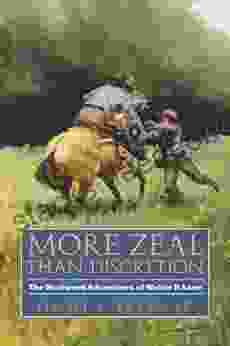
 Amir Simmons
Amir SimmonsMore Zeal Than Discretion: A Closer Look at the Risks and...
Enthusiasm is often seen as a positive...
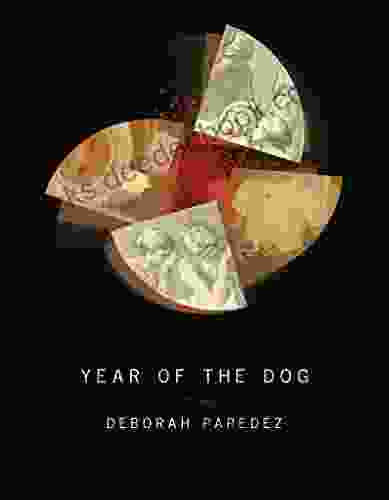
 Wayne Carter
Wayne CarterYear of the Dog: American Poets Continuum 178
Year of the Dog is a...
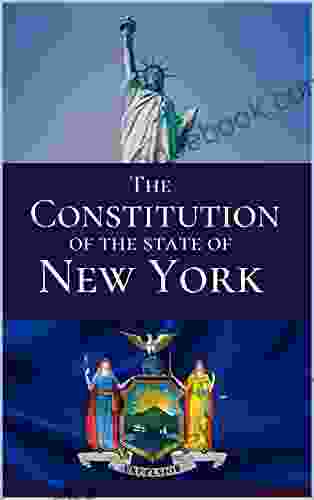
 David Foster Wallace
David Foster WallaceThe Constitution of the State of New York: A...
The Constitution of the...
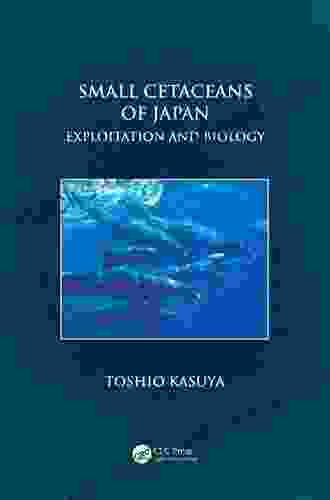
 Harvey Bell
Harvey BellSmall Cetaceans of Japan: Exploitation and Biology
Small cetaceans, including...

 Blake Bell
Blake BellEffortless Elegance: A Comprehensive Guide to Captivating...
In the realm of crocheting,...
4.6 out of 5
| Language | : | English |
| File size | : | 3997 KB |
| Screen Reader | : | Supported |
| Print length | : | 288 pages |
| X-Ray for textbooks | : | Enabled |


